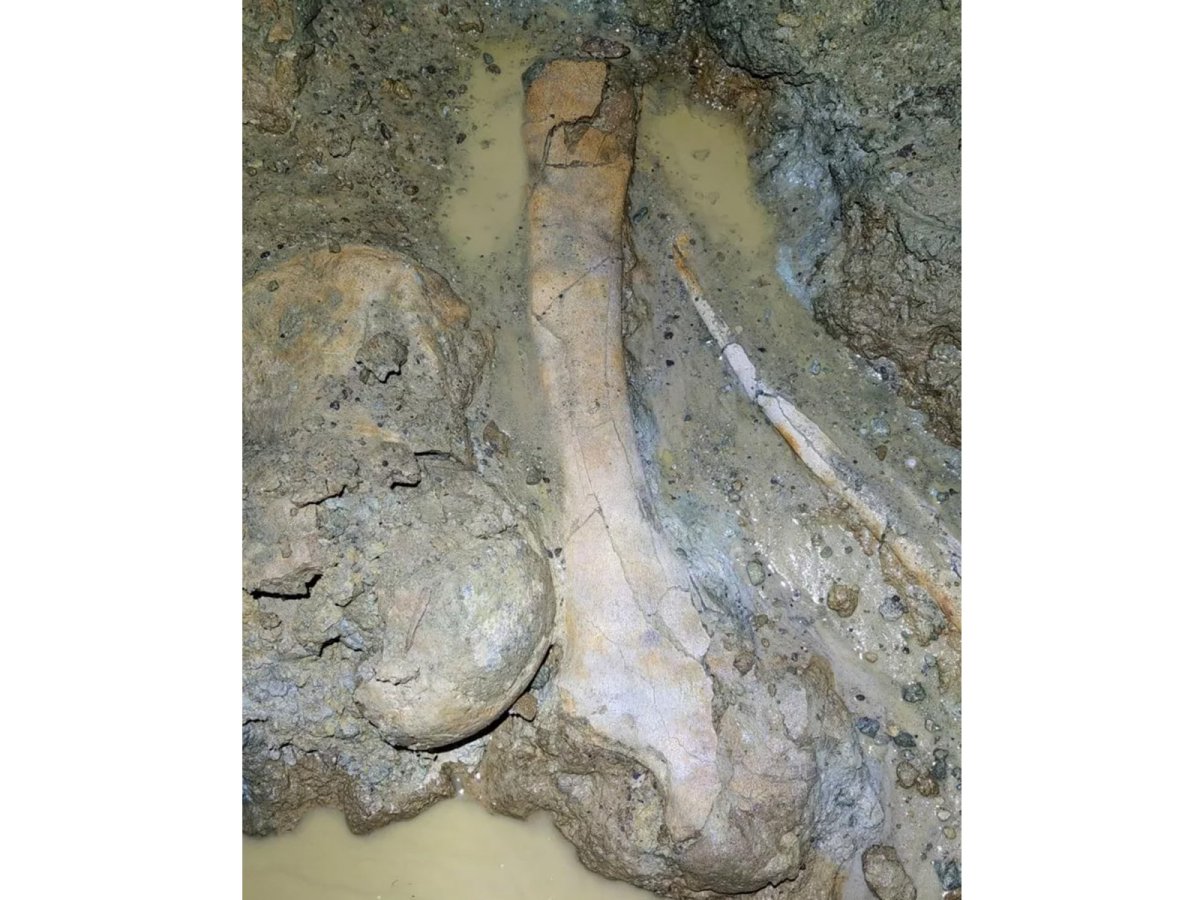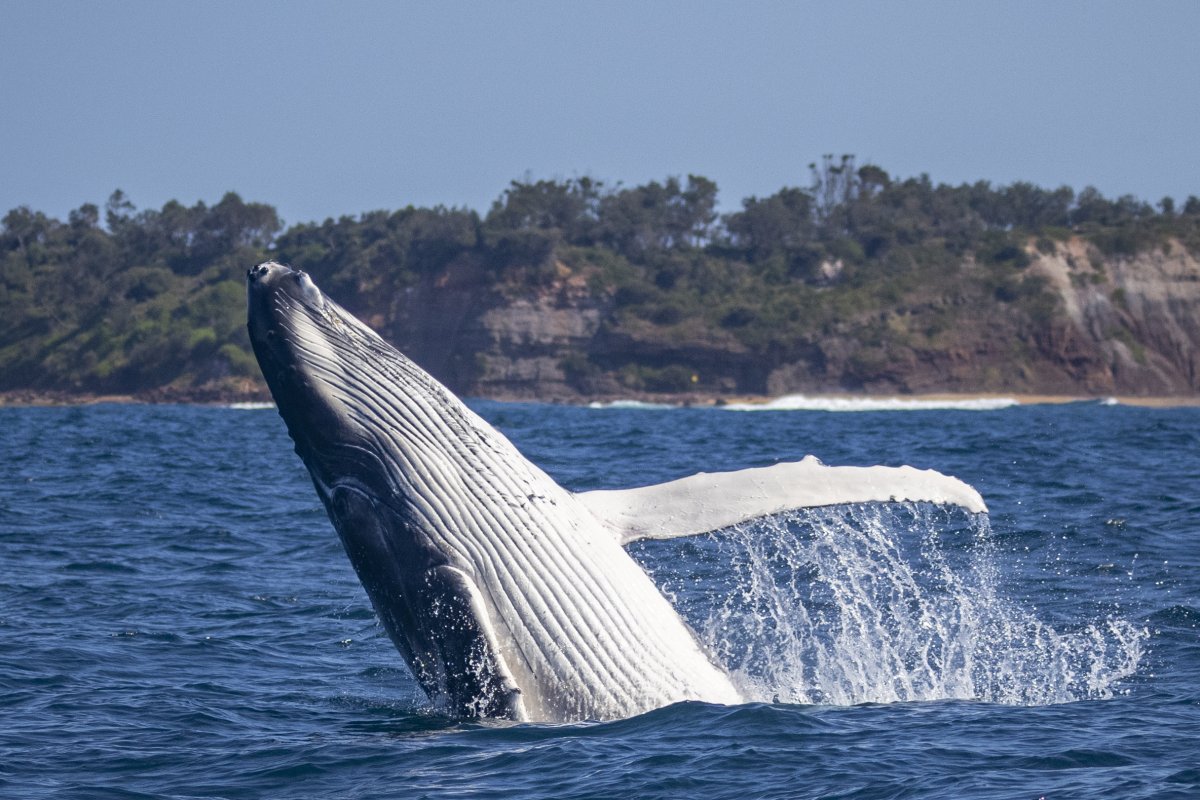A collection of prehistoric whale bones has been discovered in South Carolina, delighting a group of amateur paleontologists.
The bones are thought to have been part of a flipper belonging to a large baleen whale. They were uncovered by South Carolina fossil-hunting group Palmetto Fossil Excursions and some were identified as scapula, ulna and radius bones by one of the diggers.
In a Facebook video documenting the find on Monday, Skye Basak, co-owner of Palmetto and an amateur paleontologist, said she had started digging a small hole and had come across what she thought was a limb bone belonging to a mastodon—a large, elephant-like animal that went extinct around 10,000 years ago.
After Basak widened the hole, it became clear that the bones were actually from a whale flipper, which she described as "one of the most rare components of a whale skeleton that you can possibly hope to find."
She added: "I have never found even one of these bones for a flipper, and I think I've dug like 36 whales—this will make 37. For this to be the first flipper bone that I've ever uncovered, let me just tell you I am super, super, super excited."
Basak told Newsweek that the exact whale species was yet to be determined but that it is "approximately 2.5 million years old." One of the bones, seen below, is around 24 inches long.

Excavation of the bones has continued this week following the discovery on Monday. The group plans to donate them to the museum at the College of Charleston if the museum accepts them, WCBD reported.
South Carolina is known to be rich in fossils. According to the Discover South Carolina tourism website, fossils such as shark teeth can be found on most of the state's beaches as well as in inland areas along streams and rivers.
Megalodon tooth fossils are often found in the state. Megalodons were the biggest sharks in the world before they became extinct 3.6 million years ago. It is estimated that they could grow up to 15 to 18 meters (50 to 60 feet) long.

In May last year, a young boy on vacation found a 4-inch megalodon tooth on a South Carolina beach. Another tooth, unearthed at a construction site in March 2021, measured roughly 6.45 inches.
South Carolina is not the only part of the U.S. where fossil experts have made interesting discoveries in recent months.
In late May, a study was published documenting the fossilized remains of an extinct big cat known as the American cheetah. The remains, found inside caves in the Grand Canyon in Arizona, had been known about previously—but the new research suggested they were not from pumas, as previously thought.
One of the cheetahs in particular appeared to have died following a violent clash with another animal of the same species, according to the study.
Update 6/10/22, 11:52 a.m. ET: This article has been updated to include a photo of the bones, information from Basak, and to update her preferred name.
Update 6/13/22, 12:01 p.m. ET: This article has been updated to amend the description of the bones' finders.
Update 6/15/22, 11:19 a.m. ET: This article has been updated to include a new video.
Uncommon Knowledge
Newsweek is committed to challenging conventional wisdom and finding connections in the search for common ground.
Newsweek is committed to challenging conventional wisdom and finding connections in the search for common ground.
About the writer
To read how Newsweek uses AI as a newsroom tool, Click here.








